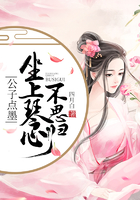At any rate, the general idea that George Sand had of the artist was exactly the idea adopted by romanticism. We all know what a being set apart and free from all social and moral laws, what a "monster" romanticism made of the artist. It is one of its dogmas that the necessities of art are incompatible with the conditions of a regular life. An artist, for instance, cannot be _bourgeois_, as he is the exact opposite. We have Kean's speech in Dumas' drama, entitled _Kean, or Disorder and Genius._"An actor," he says, "must know all the passions, so that he may express them as he should. I study them in myself." And then he adds:
"That is what you call, orderly! And what is to become of genius while I am being orderly?"All this is absurd. The artist is not the man who has felt the most, but the man best gifted for imagining the various states of mind and feeling and for expressing them. We know, too, that an irregular life is neither the origin nor the stamp of extraordinary intellectual worth. All the cripples of Bohemian life prove to us that genius is not the outcome of that kind of life, but that, on the contrary, such life is apt to paralyze talent.
It is very convenient, though, for the artist and for every other variety of "superior beings" to make themselves believe that ordinary morals are not for them. The best argument we can have against this theory is the case of George Sand. The artist, in her case, was eminently a very regular and hard-working _bourgeois_ woman.
The art in which George Sand gave evidence of the surest taste was music.
That is worthy of notice. In one of her _Lettres d'un voyageur_, she celebrates Liszt attacking the _Dies irae_ on the Fribourg organ.
She devotes another letter to the praise of Meyer-beer. She has analyzed the different forms of musical emotion in several of her books.
One of the ideas dear to romanticism was that of the union and fusion of all the arts. The writer can, and in a certain way he ought, to produce with words the same effects that the painter does with colours and the sculptor with lines. We all know how much literature romantic painters and sculptors have put into their art.
The romantic writers were less inclined to accord the same welcome to music as to the plastic arts. Theophile Gautier is said to have exclaimed that music was "the most disagreeable and the dearest of all the arts." Neither Lamartine, Hugo, nor any other of the great writers of that period was influenced by music.
Musset was the first one to be impassioned by it, and this may have been as much through his dandyism as from conviction.
_Fille de la douleur, Harmonie, Harmonie, Langue que fiour l'amour invents le ginie, Qui nous viens d'Italie, et qui lui vins des cieux, Douce langue du coeur, la seule ou la pensiee, Cette vierge craintive et d'une ombre ofensie, Passe en gardant son voile et sans craindre les eux, Qui sait ce qu'un enfant peut entendre et peut dire Dans tes soupirs divins nes de l'air qu'il respire, Tristes comme son coeur et doux comme sa voix?_George Sand, who agreed with Musset, claimed for "the most beautiful of all the arts," the honour of being able to paint "all the shades of sentiment and all the phases of passion." "Music," she says, "can express everything. For describing scenes of nature it has ideal colours and lines, neither exact nor yet too minute, but which are all the more vaguely and delightfully poetical."[31]
[31] Eleventh _Lettre d'un voyageur_: To Giacomo Meyerbeer.
As examples of music in literature we have George Sand's phrase, more lyrical and musical than picturesque. We have, too, the gentle, soothing strophes of Sully Prudhomme and the vague melody of the Verlaine songs: "_De la musique avant toute chose_." It would be absurd to exaggerate the influence exercised by George Sand, and to attribute to her an importance which does not belong to her, over poetical evolution. It is only fair to say, though, that music, which was looked upon suspiciously for so long a time by classical writers of sane and sure taste, has completely invaded our present society, so that we are becoming more and more imbued with it.
George Sand's predilection for modern art is another feature which makes her one of us, showing that her tendencies were very marked for things of the present day.















